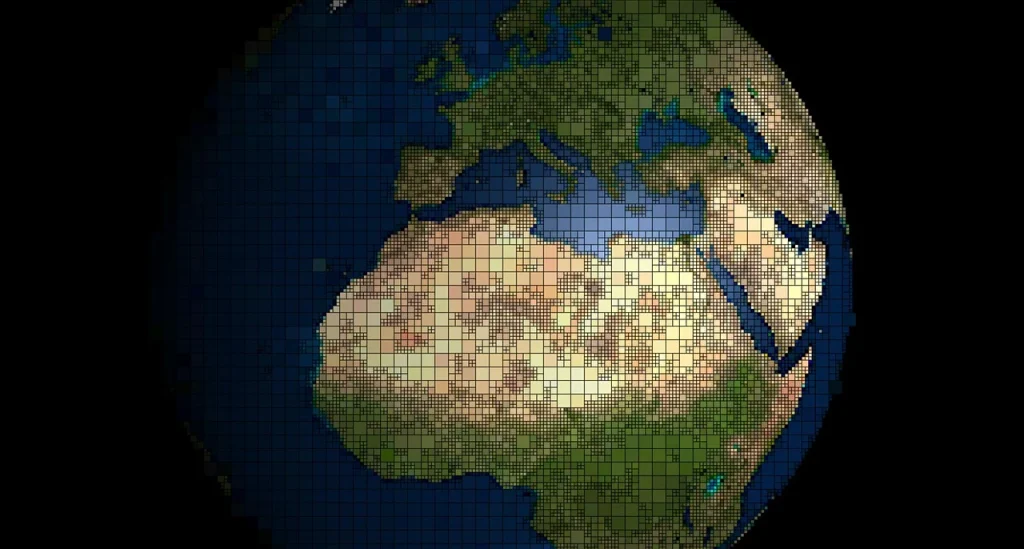
“Up Periscope”. We are all familiar with these words from wartime movies. They signify that those who have been tensely awaiting events are about to reconnect through a narrow aperture with the wider world.
In the fast-moving world of international politics, diplomacy and trade, sometimes there is urgent need to survey where we are, while standing back from the bewildering detail thrown at us by the rush of events.
From the point of view of nation states of Europe, some very obvious changes have happened. Vladimir Putin‘s Russia, President Xi Jinping‘s China and Kim Jong-un‘s North Korea have emerged as members of a de facto military coalition that many believed had disappeared with the collapse of the Soviet Union and the end of the cold war. All three members of this coalition are nuclear powers. All of them are autocracies of one kind or another. All of them are united by a loathing of the West and all it stands for.
That in turn poses the questions: what is the West and what does it stand for? Until the advent of Donald Trump, the West considered itself to be a worldwide community of functioning liberal democracies. That community stretched from Japan through many Asian states, and included Australia and New Zealand. While India did not consider itself to be a part of the West, it did consider itself to be a non-aligned democracy (the biggest in the world) that could do business with western states and respected the international rule of law. Many parts of Latin America also see themselves as functioning democracies, and most of Europe, with the exceptions of the Russian Federation and Belarus, claim to be democratic states. The powerhouse in terms of security behind the West was North America including the US and Canada.
The question is whether there is any effective counterbalance to the military axis of Russia, China and North Korea. The presence of China’s armed forces on parade at Red Square, and direct participation by North Korean forces in the invasion to eliminate Ukrainian democracy, remind us that a balance is necessary. Trump’s second term, and the chaotic but deeply dysfunctional relationship between Washington, Moscow and Kyiv, has changed all previous assumptions utterly. To the foregoing must be added the Middle East arena. The US obviously considers that Binyamin Netanyahu’s Israel is of equal importance as any European state in terms of its ally status, the UK included.
This brings us to the fundamental question. Does the Trump administration regard the European Union as a hostile entity as distinct from an economic competitor? The conversations between senior Trump officials during their leaked security discussions concerning the planned Houthi air strikes suggest visceral, almost blind, hostility against “the Europeans”. Bearing in mind that the UK was willing to co-operate with US air missions designed to counter the Houthi threat to international shipping in the Red Sea zone, can it really be that Washington has conceived a new deep animus against other European states as perceived obstacles to its policies? Or should we swivel the periscope to look at other indications of Trumpism’s attitude towards and plans for Europe and the EU?
It is worth recalling that Elon Musk actually discussed the possibility of King Charles reversing the results of the last UK election by removing Keir Starmer as prime minister. It is also worth reminding ourselves that the Trump administration has signalled active sympathy for Germany’s AFD. Victor Orbán‘s Hungary seems firmly cemented into political alliance with Trump and Netanyahu (and Washington’s sympathies with Marine Le Pen and Nigel Farage are all too obvious).
Political developments in Romania and Slovakia and repeated suggestions that the democratically-elected Zelenskiy government in Ukraine is somehow illegitimate are all part of a Trumpian playbook. I believe that so-called sophisticated analysts who dismiss the obvious aims and methods of Trump as a strategy of unsettlement directed against counterparties in political negotiation are dangerously naive. The leaked comments about Europe are a better indicator of underlying attitudes and aims.
All of this leaves the EU in particular, and the UK as its major ally on Ukraine, in a quandary.
It is increasingly obvious that there are lines of fragility and dissent between the EU Commission’s view of itself in international affairs and the various outlooks of its individual nation state members.
The issue of migration – especially economic migration disguised as asylum-seeking – is an ever growing issue for the political viability of the EU. Angela Merkel‘s naivety and, I regret to say, her arrogance posing as morality, has proven to be a political bridge far too far.
EU member states now realise the folly of inserting into the EU charter of fundamental rights a wholly outdated and unsustainable recognition of asylum rights so open to massive abuse as a cover for migrancy.
Migration is not only an issue for Starmer’s UK. The entire EU badly needs a fundamental reset on migration if minimal cohesion and goodwill is to be preserved. The fate of the union depends on facing up to this glaring vulnerability. It’s that serious.
